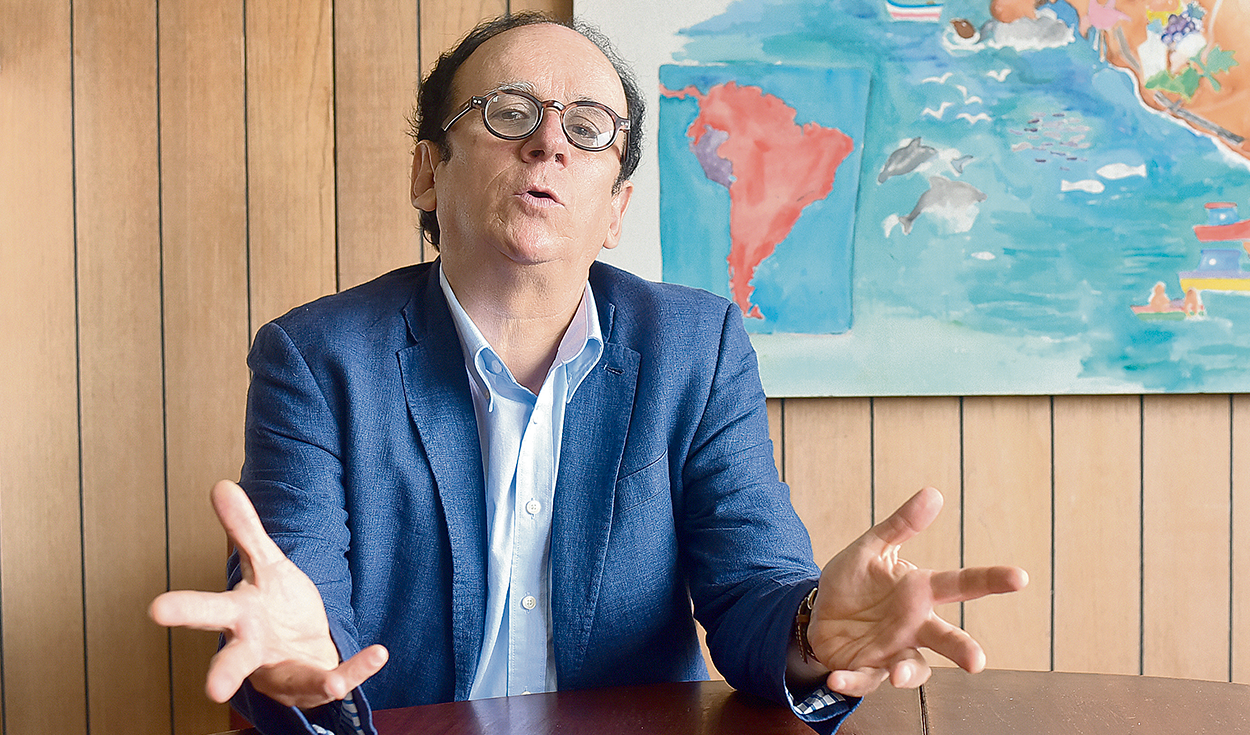
Chili received 2024 with the beginning of a new royalty law for large copper mining, called mining royalty, which will allow it to raise US$1,350 million annually. The measure was presented by President Gabriel Boric and the Senate. De Echave recounts the need to apply a mining tax reform and warns, despite the territorial proximity, how terribly distanced we are due to the absence of political agreement for the common good.
—What lessons can the Chilean royalty leave us?
—Its implementation can make us reflect on the Peruvian case. Let us not forget that in the Chilean case there was a proposal tax reform at the beginning of the current Government (of Gabriel Boric) and was discarded. However, the mining royalty bill was approved. It generates mixed feelings because, although there is a royalty law in Peru, the fact is that a tax reform was proposed here in the government of (Pedro) Castillo; and it had an important component for mining…
—But it was discarded. She was going to lose competitiveness, detractors alleged…
—The MEF requested a delegation of powers to the Congress and, at the same time, made a technical request to the International Monetary Fund to develop this tax reform, including the mining chapter, and determined that there was room to increase the tax pressure of the mining sector without losing international competitiveness.
—Was it a tax on excess profits that the IMF endorsed?
-No. It was said: “Let us moderately modify the royalty tax rate and special tax on the mining”. Also raise the royalty floor by up to one percentage point. Overprofit is another discussion that was not part of Francke’s reform.
—And with these changes the most tangible effects are…
—This increase will represent additional tax revenues and these will be sustained and not random; That is, not depending on how the price of raw materials is going, in this case the price of minerals. So, of course, one feels that there is a missed opportunity.
—The prices of metals such as copper and gold remain at historic levels. Are the conditions in place to insist on taxing mining more?
—And everything indicates that prices will continue to be very high. So, in a context where tax revenues have fallen, the economy is in recession and we undoubtedly have the need for additional revenues, it is a pending issue. The IMF compared us with 16 countries that have an important activity in mining and they said very clearly that there was room, not a huge one, but room to increase (the tax burden). Chile is part of these countries.
—What is the current panorama of mining taxation?
—Taking the income tax, the participation of mining in 2022 was 27%. It was important. In 2023, until the last month that I have recorded (November), its participation in IR collection dropped to 14%. On the other hand, the participation of mining in total internal taxes fell from 14.4% in 2022 to 9.8% in 2023. There is undoubtedly a drop in the participation of income tax, and there is also a drop in the participation of mining in total internal taxes.
—How far behind are we in the region?
—After the boom that ended in 2013, all countries that saw their tax revenues decrease applied tax reforms. Many of them, structural. Even conservative and progressive governments. As he world Bank like the IMF recommended making efforts for their tax revenues.
—Do you see the Boluarte Government raising taxes on mining?
—I would say that neither in the Executive nor in Congress today is there political will to carry out a tax reform, despite the fact that when it was proposed, Minister Alex Contreras was Francke’s deputy minister and his team defined the proposal. (…) The reform received a huge offensive from the main power groups and today this Government is much more permeable.
Source: Larepublica
Alia is a professional author and journalist, working at 247 news agency. She writes on various topics from economy news to general interest pieces, providing readers with relevant and informative content. With years of experience, she brings a unique perspective and in-depth analysis to her work.












